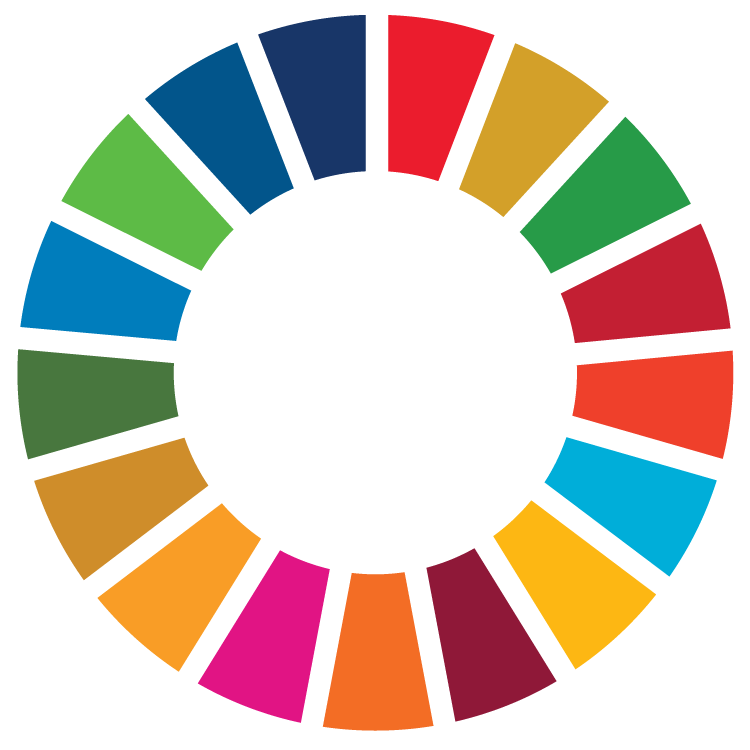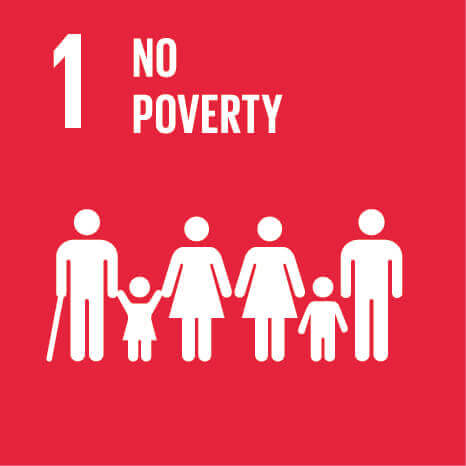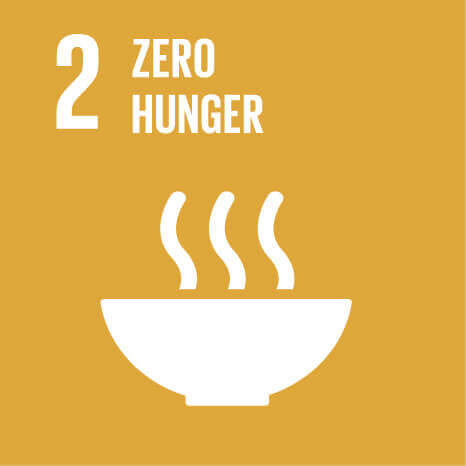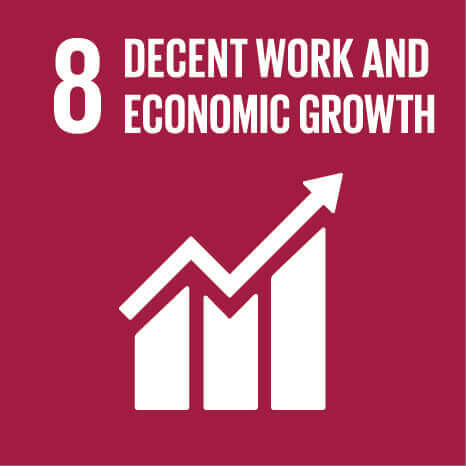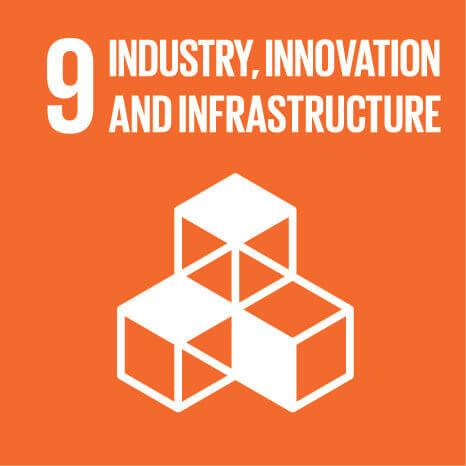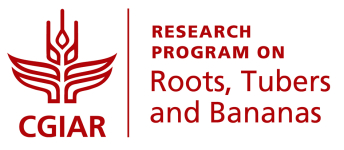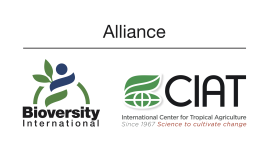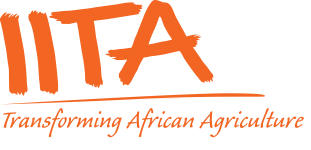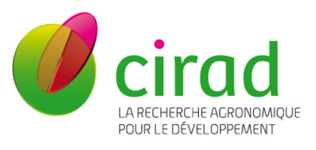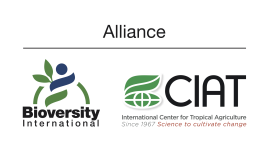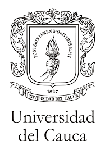Use of Efficient Small scale Flash Dryer by eleven private cassava flour/starch processors led to increased profitability in Democratic Republic of Congo, Nigeria and Colombia
Published on: April 6, 2021, Submitted by Enrico Bonaiuti on: April 6, 2021, Reporting year: 2020
Efficient small-scale flash drying is an innovation that the program scaled out to eleven private cassava flour processors and equipment manufacturers from D.R. Congo, Nigeria and Colombia. Beneficiaries increased their processing capacity by 20 to 50% when upgrading from other artificial drying systems, and by up to 400% when replacing open-air solar drying. Other beneficiaries who upgraded their existing flash dryers increased the profitability of their process by up to 10% thanks to reduced fuel consumption.
Efficient Small scale Flash Dryer
Energy-efficient small-scale flash drying is a promising technology to meet the increasing demand for high-quality cassava flour (HQCF) and starch. The technology significantly reduces bacterial, fungal, and dust contaminations of HQCF, and health risks for consumers. However, the configuration and operating conditions of existing small-scale flash dryers are sub-optimal, leading to high energy use and operating costs. This can mean the difference between profitability and loss because margins in HQCF and starch production are small. Since 2013, the CGIAR Roots, Tubers and Bananas (RTB) program in collaboration with local stakeholders across the Democratic Republic of Congo, Nigeria, and Colombia have developed a numerical modeling method to design energy- and cost-efficient flash dryers, proven its effectiveness through construction and testing of a pilot-scale dryer, and started scaling-out the technology to private sector partners.
Scaling Readiness was used to identify bottlenecks for the transfer of the improved small-scale flash dryer innovation to the private sector. Through fieldwork data collection and online semi-structured interviews, Scaling Readiness scientists achieved in-depth insights into local social dynamics and institutional relationships. The analysis highlighted the role of training sessions and sustained technical support to shape the capacity of stakeholders – and therefore, the increased uptake of the flash dryer innovation. The economic value of the innovation is also key for the stakeholders’ willingness to adopt the innovation across scales, as represented in project partners’ discourses.
During project implementation eleven drying systems were improved: five processors invested in new efficient flash dryers; three processors invested in improved heat exchangers, a key component of flash dryers; and three existing flash drying systems were also improved by adopting new configurations and technical adjustments to the equipment designs. Moreover, in collaboration with the CGIAR-RTB team, three new flash dryers were built for research institutions: IITA in D.R. Congo, FIIRO in Nigeria, and UNICAUCA in Colombia, which will help to scale the technology to more users in the future.
As a result of this investment, the users of the innovations increased both processing capacity and profitability. For example, two cassava processors in D.R. Congo who adopted these innovations increased their processing capacity by 23% and 50%, and profitability by 8% and 10%, corresponding to extra income of about US$ 10,000/year/processor. Increased processing capacity in turn can boost demand for cassava roots and contribute to creating rural employment and income opportunities, including for youth.
Reduced fuel consumption per kg of HQCF/starch produced also has benefits in terms of carbon footprint, with an estimated 15 to 25% reduction after the adoption of the flash dryer innovations.
During the project implementation, eight project partners from the private sector adopted the innovations of flash drying technology. This was achieved by implementing the Scaling Readiness strategy that included three important activities: i) Capacity Building on flash drying technology and business plans for cassava flour and starch production, ii) Continuous technical support through digital communication channels and on-site visits, and iii) establishing an innovation forum for wider dissemination.
For Capacity Building on flash drying technology, a 5-day workshop was held at Alliance Bioversity-CIAT (Colombia) in August 2019 for theoretical and practical training on flash drying, including the prototype flash dryer and auxiliary technologies (dewatering, hot air generation, feed system, cyclone, etc.). The workshop included training on economic aspects of investment in a flash dryer: estimation of operations costs, the financial viability of the investment, and developing business plans. The workshop was attended by five equipment manufacturers (2 from Nigeria, 2 from Colombia, and 1 from DRC), 13 cassava flour processors (5 from Nigeria, 3 from DRC, 1 from the Dominican Republic, 1 from Brazil, and 3 from Colombia), two cassava producers from Colombia, and other participants from university and research institutions.
During the workshop, a group was created on the WhatsApp text messaging platform to facilitate follow-up and technical support. The group has maintained continuous communication in 2019 and throughout 2020, linking the RTB technical support team and the project partners. Technical specifications on the design and manufacture of drying components such as the heat exchanger, feeding system, etc. have been shared and adapted to local contexts and constraints. Eleven formal technical support events were also held during that period, three of which through on-site visits and eight through online meetings.
Linkages were established with ongoing public and private sector initiatives aimed at improving the integration of flash drying technology into existing value chains. Innovation forums were organized to assess and promote conditions conducive to scaling out efficient small-scale flash drying. Meetings and discussion workshops were held in Nigeria and D.R. Congo with the participation of cassava producers, bankers, cassava processors, members of associations, institutions that promote the development of the cassava industry, and other stakeholders. Some media were present and publicized the event (link, link, link).
Stage of Maturity and Sphere of influence
-
Stage of Maturity: Stage 1
-
Contributions in sphere of influence:
1.3.1 - Diversified enterprise opportunities
C.1.1 - Increased capacity of beneficiaries to adopt research outputs
Acknowledgement
This research was undertaken as part of, and funded by, the CGIAR Research Program on Roots, Tubes and Bananas (RTB) and supported by CGIAR Trust Fund contributors.
